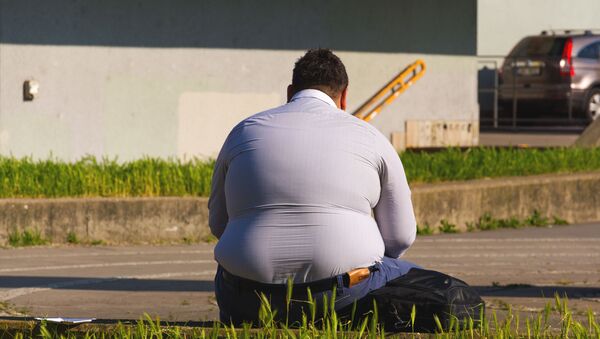73-year-old BBC Radio 4 host Michael Buerk said that the Britain’s NHS should let obese people die earlier in order to unburden the state coffers of the responsibility of curing obesity, which he maintains should not be classified as a disease.
"How much would he or she cost if, instead of keeling over with a heart attack at 52, they live to a ripe, dementia-ridden old age, requiring decades of expensive care?” Buerk asked in his column “Leave the Couch Potatoes Alone”, published by Radio Times. “The obese will die a decade earlier than the rest of us; see it as a selfless sacrifice in the fight against demographic imbalance, overpopulation and climate change.”
Buerk also suggested that “the freedom to make bad choices is what personal autonomy, indeed democracy, is all about . . . who is to say longevity is the ultimate goal in life?”
He believes that seeing obesity as a “disease” encourages people to seek treatment, while actually it is “weakness” not “illness” and that “you’re fat because you eat too much.”
These comments weren't taken lightly by a number of health activists and journalists, with Metro writer Gillian Fisher arguing that Burke’s comments are not only “untrue” but also “harmful” and fail to address the challenges of weight loss.
“It is the thoughtless and misplaced aspersions cast by Mr. Buerk that can lead to overweight people developing mental health issues and afraid to go to the doctors for fear of being termed a flabby disgrace," Fisher wrote for Metro on Tuesday, 6 August.
Sunday Times author and palliate care doctor Rachel Clarke commented on Twitter on how "crushingly grim it must feel to be told by a BBC great: 'Good. Die young'."
Any idea how crushingly grim it must feel to be told by a BBC great: “Good. Die young. Do your bit for overpopulation & climate change”?
— Rachel Clarke (@doctor_oxford) August 6, 2019
Nope. Michael Burke clearly hasn’t a clue, or he’d never have written something so crass and insensitive.https://t.co/PXZVeNqCWN
While writer for the Guardian and Observer Hannah Jane Parkinson noted “Buerk by name, berk by nature”.
Buerk by name, berk by nature https://t.co/ZhIat94b5D
— Hannah Jane Parkinson (@ladyhaja) August 6, 2019
Michael Buerk had been chastised earlier for harshly criticising Benedict Cumberbatch and Emma Thompson in 2016 for their “infantile” worldview and political campaigning.
On Good Morning Britain, weight loss expert Steve Miller defended Buerk by saying "nobody is fat in a famine". Buerk is perhaps best known for his coverage of the Ethiopian famine in October 1984, which inspired the Band Aid charity record and, subsequently, the Live Aid concert.
Problem of obesity in the UK
According to the latest NHS report published in May 2019, 29 percent of UK adults and 20 percent of 6-year old children are currently classified as obese – the numbers that showed an increase from previous years. Moreover, over 10,000 admissions into UK hospitals in the period from April 2017 to December 2018 were directly attributable to the problem of obesity, with over 700,000 patients who were admitted also suffered from obesity as a factor contributing to disease.
The problem is especially significant among young people; 28 percent of youngsters aged 2 to 15 in the UK were classified as obese or overweight in 2016. The data collected from 2017-2018 also showed that weight problems among children were often associated with having obese parents, as 28 percent of children of obese mothers were also obese. The main causes for obesity are often argued to be lack of physical activity and changing food consumption patterns.
The sensitive question of NHS funding
Meanwhile, after more than a year of tensions and rising demands to increase funding for the National Health Service, which suffers from widespread deficits and prolonged waiting times for hospital treatment, newly-elected Prime Minister Boris Johnson has announced an extra £1.8 billion in funding for the NHS that will be spent on hospital modernisation.
The funding for NHS increases 3.4 percent each year, BBC argues, with 30p out of every £1 from the UK 's public funding on services being spent on health care, although the annual rise in demand is much higher. Obesity is one among several factors driving the need for more NHS funding.




